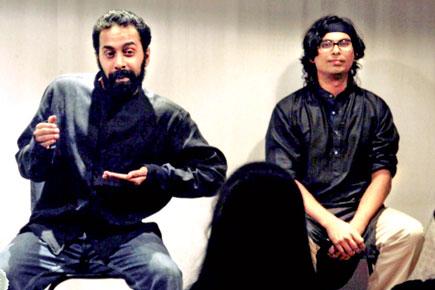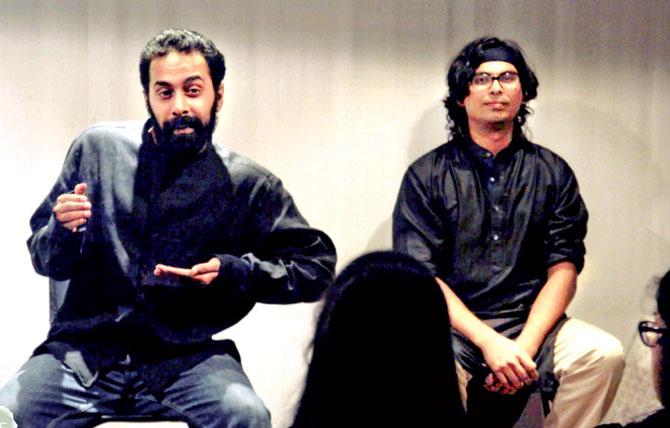Two storytellers give you their take on what the end of your 20s will be like

Gerish Khemani and Akshat Nigam will revisit their lives before they turned 30, through six stories
 Why are we such losers?" That's the question plaguing the minds of two young men, Gerish Khemani and Akshat Nigam, who've just crossed 30. For them, the "big Three Oh" is not just a number, but also a time when they need to sit back, introspect and re-examine how their lives were, and how it's going to be.
Why are we such losers?" That's the question plaguing the minds of two young men, Gerish Khemani and Akshat Nigam, who've just crossed 30. For them, the "big Three Oh" is not just a number, but also a time when they need to sit back, introspect and re-examine how their lives were, and how it's going to be.
ADVERTISEMENT
In Error 404: Life Not Found — a 90-minute storytelling session which will be staged this Saturday — the duo will revisit their own histories through six vignettes that trace how they were at birth, as children and adolescents, before reaching adulthood. Their tales will also trace their trysts with love, loss, hopes and delusions, among other existential issues.

Gerish Khemani and Akshat Nigam will revisit their lives before they turned 30, through six stories
"We are bringing together stories that stem from personal experiences. The fact that we are giving expression to some, means they continue to still inform us and shape us more tangibly," says Khemani, a Mumbai-based theatre practitioner and drama educator.
For the session, the duo has adopted techniques of UK-based storyteller Dr Gauri Raje. "The process of writing these stories has been cathartic and helped us make sense of our situation," explains Nigam, a literature and creative writing teacher.
The audience only becomes an unsuspecting participant in this journey. But how receptive is the audience to biographical, oral narratives? "At the moment, there is a huge void of this kind of storytelling in Mumbai. When we did a similar session a month ago, it took some time to warm them up to what we were trying to do," adds Khemani.
After the initial unease, they caught on with the artistes. "Theatre is performance-driven, and often tends to alienate the artiste and the audience… storytelling is far more alive and spontaneous. Our vocabulary alters instinctively on the basis of the way the audience reacts to us," says Khemani.
 Subscribe today by clicking the link and stay updated with the latest news!" Click here!
Subscribe today by clicking the link and stay updated with the latest news!" Click here!






